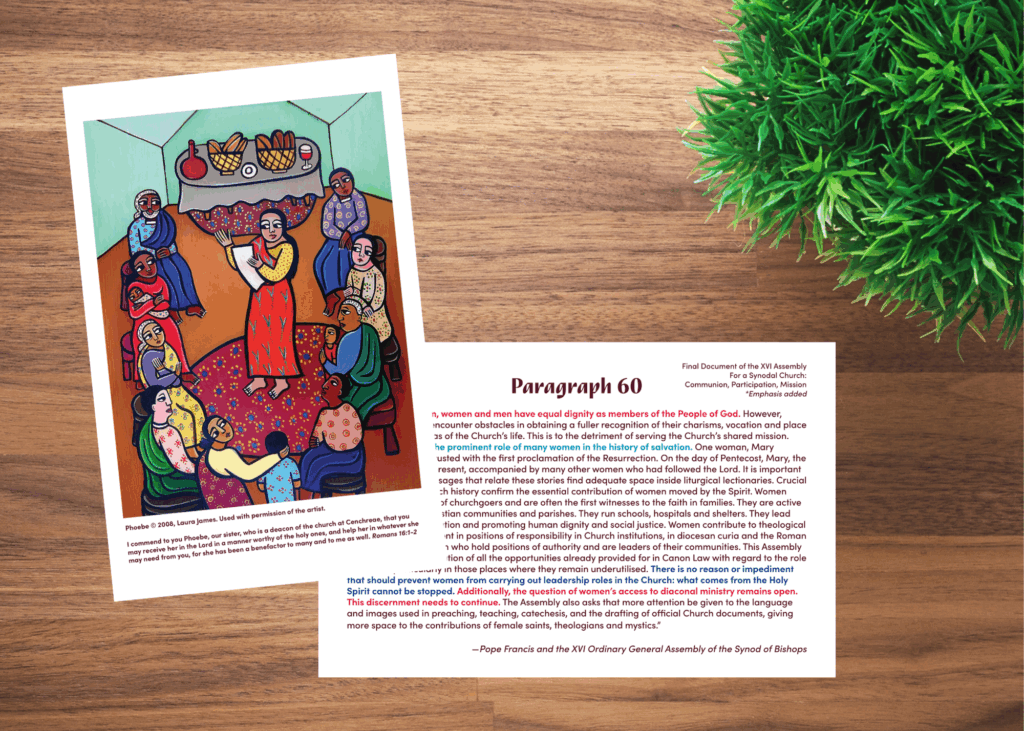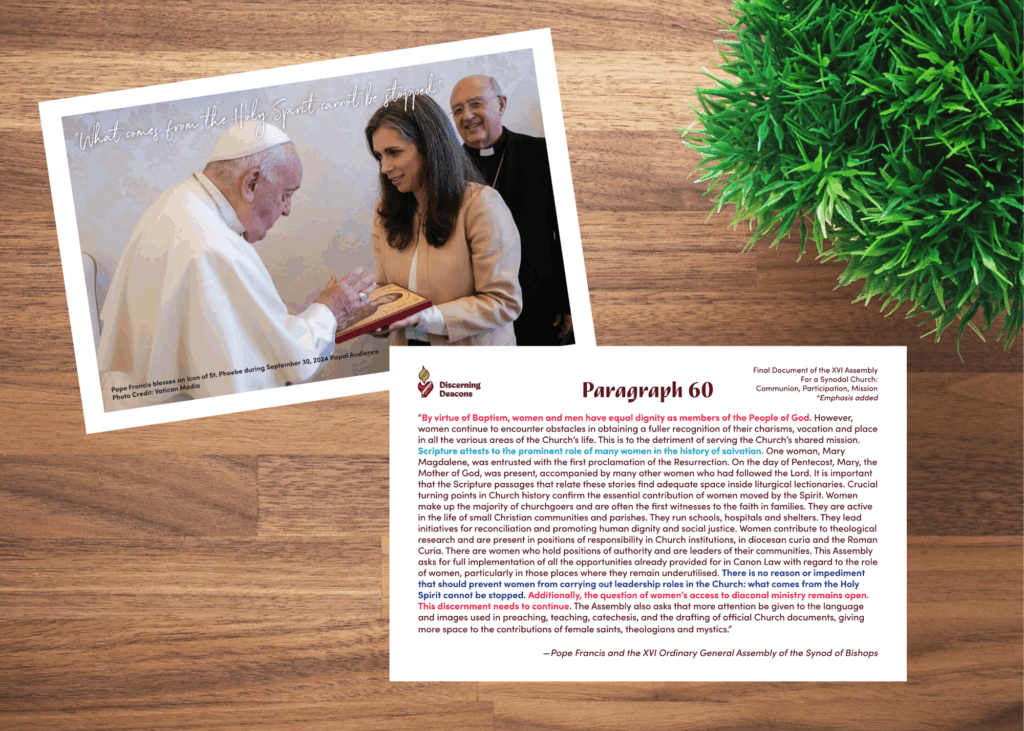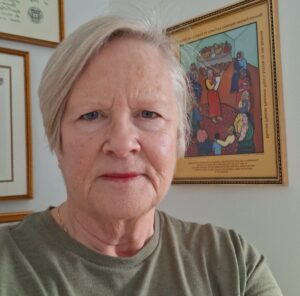Paragraph 60: “What comes from the Holy Spirit cannot be stopped”
At the close of the October 2024 session of the XVI Ordinary General Assembly of the Synod of Bishops, the members of the synod, along with Pope Francis, published the final document of the Synod on Synodality. The document, which belongs to Pope Francis’s ordinary magisterium, serves as a road map for the implementation of synodality.
Paragraph 60, excerpted below, addresses women’s participation in a synodal church. You can read the entire final document here.
60. By virtue of Baptism, women and men have equal dignity as members of the People of God. However, women continue to encounter obstacles in obtaining a fuller recognition of their charisms, vocation and place in all the various areas of the Church’s life. This is to the detriment of serving the Church’s shared mission. Scripture attests to the prominent role of many women in the history of salvation. One woman, Mary Magdalene, was entrusted with the first proclamation of the Resurrection. On the day of Pentecost, Mary, the Mother of God, was present, accompanied by many other women who had followed the Lord. It is important that the Scripture passages that relate these stories find adequate space inside liturgical lectionaries. Crucial turning points in Church history confirm the essential contribution of women moved by the Spirit. Women make up the majority of churchgoers and are often the first witnesses to the faith in families. They are active in the life of small Christian communities and parishes. They run schools, hospitals and shelters. They lead initiatives for reconciliation and promoting human dignity and social justice. Women contribute to theological research and are present in positions of responsibility in Church institutions, in diocesan curia and the Roman Curia. There are women who hold positions of authority and are leaders of their communities. This Assembly asks for full implementation of all the opportunities already provided for in Canon Law with regard to the role of women, particularly in those places where they remain underutilised. There is no reason or impediment that should prevent women from carrying out leadership roles in the Church: what comes from the Holy Spirit cannot be stopped. Additionally, the question of women’s access to diaconal ministry remains open. This discernment needs to continue. The Assembly also asks that more attention be given to the language and images used in preaching, teaching, catechesis, and the drafting of official Church documents, giving more space to the contributions of female saints, theologians and mystics.
Pope Francis and the XVI Ordinary General Assembly of the Synod of Bishops Tweet
Share Paragraph 60
Version 1: St. Phoebe
(feat. Laura James Art)

Design by Kim Winscher, in loving honor of Grandma Mildred Ballman
Version 2: Pope Francis Blessing St. Phoebe Icon

Design by Kim Winscher, in loving honor of Grandma Mildred Ballman
You can also download a simple, text-only version of Paragraphs 60, along with Paragraph 73 on deacons, clicking the button below.



